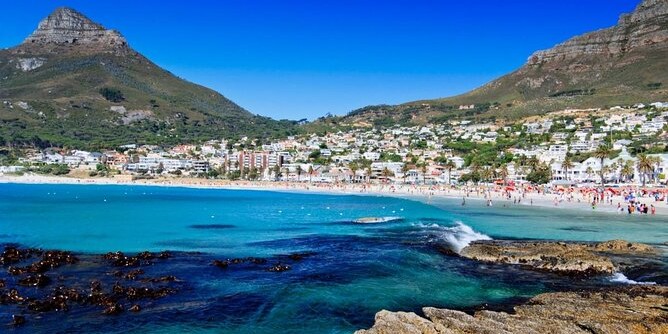A recent study by Cape Town scientists, Dr Yes Barnes and professor Leslie Patrick sparked a dispute with the City of Cape Town over the quality of the city’s coastal waters.
The controversy revolves around the findings of Project Blue, a citizen-led pilot study conducted in November and December 2024. The study suggested possible sewage contamination at several beaches, including Camps Bay, Clifton and the Strand.
Project Blue reports the presence of E.coli and enterococcus in water samples, raising concerns about public health risks to beachgoers.
The researchers claimed their methods met international scientific standards, with sterile sample collection, temperature-controlled transport and rapid laboratory analysis within four hours.They aimed to offer an image of water safety to inform swimmers.
Dr Barnes and Professor Petrick stressed that their investigation was not intended as a comprehensive study but as a pilot project to highlight potential risks.
Deputy Mayor and member of the Mayor’s Territorial Planning and Environmental Protection Committee, Eddie Andrewsquestioned the credibility of Project Blue’s findings.
According to Andrews, the city’s analysis, conducted by laboratories accredited by South Africa’s National Accreditation System, consistently showed high water quality at 30 beach resorts during the holiday season.
Of the nearly 300 samples taken, 100% met recreational use thresholds based on enterococci levels, the globally accepted standard for evaluating sewage pollution in marine waters.
Andrews criticized Project Blue’s inclusion of E.coli as a measure, citing international guidelines that deem it unsuitable for the marine environment.
Furthermore, the municipality challenged the accreditation of the laboratories used by Project Blue, stating that they are not certified to analyze enterococcus or E.coli in seawater.
Andrews described the report as “limited and misleading”, suggesting it failed to cite sound scientific references and focused disproportionately on known pollution hotspots such as Milnerton’s Lagoon Beach.
Dr Barnes and Professor Petrick defended their findings, calling the city’s response “pretty hysterical” and accusing officials of diverting attention from the underlying problems.
“This was a political science initiative designed to support public health,” Petrick said. “Instead of engaging constructively, the municipality is trying to shut scientists down.”
The researchers acknowledged the limited scope of their study, but argued that it highlights critical issues that warrant further investigation.
The city launched a summer panel that provides weekly updates on enterococcal levels at 30 popular beaches, with the goal of reassuring the public and promoting informed decision-making.
Andrews emphasized that Cape Town’s extensive sampling efforts have ensured a safe and enjoyable experience for beachgoers while immediately addressing incidents of pollution.
